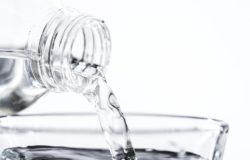Author Archives: Melissa
-

Saline Soaks For Nipple Healing While Breastfeeding
Posted on August 25, 2019 by Melissa in Maternal ChallengesNipple damage (open wounds, bleeding/scabbing, etc.) is not a part of normal breastfeeding. However, sometimes nipple damage does occur. While it is important to identify and treat the root cause of the damage, many women report that saline soaks help to heal nipple cracks or fissures sustained during breastfeeding. In the following recipe, the salt […]
Comments Off on Saline Soaks For Nipple Healing While Breastfeeding Continue Reading... -

Support Licensure for Lactation Consultants in Washington State
Posted on July 16, 2016 by Melissa in Licensure and reimbursementThe Affordable Care Act (ACA) expanded preventative health care services to include breastfeeding support. As of August 1, 2012, health plans in the United States were generally required to cover “breastfeeding support, supplies and counseling” in conjunction with each birth. Yet, here we sit years later, and International Board Certified Lactation Consultants (IBCLCs), who are […]
Comments Off on Support Licensure for Lactation Consultants in Washington State Continue Reading... -

Breastfeeding Babies and Biting
Posted on October 16, 2013 by Melissa in Infant ChallengesWhy Babies Bite It can be difficult to continue nursing a breastfeeding baby who bites. I frequently talk about “table manners” with regard to breastfeeding and it is OK for babies to learn that biting the breast that feeds them is frowned upon. Understanding the reasons why babies bite can help us find solutions to […]
No Comments. Continue Reading... -

Let’s Get Together and Spread the Boobie Love
Posted on May 17, 2013 by Melissa in AdvocacyThere’s a lot of hoopla in the field of lactation, specifically regarding credentialing, licensure, and reimbursement for lactation professionals, as we work to integrate lactation care into the healthcare industry. I’ve seen and heard and been a part of many conversations about the various roles/providers and how they fit into the very new and still […]
No Comments. Continue Reading... -

IBCLCs Make a Difference
Posted on March 6, 2013 by Melissa in Normal Breastfeeding, Breastfeeding SupportAs seen on Bloom Spokane. International Board Certified Lactation Consultants (IBCLCs) are healthcare professionals who are recognized as the experts in the field of lactation. In honor of IBCLC Day 2013, here are four ways IBCLCs make a difference on breastfeeding: Help Families When prenatal education and postpartum care is provided to women from […]
No Comments. Continue Reading... -

Flat and Inverted Nipples
Posted on May 31, 2012 by Melissa in Normal Breastfeeding, Maternal ChallengesAbout Flat and Inverted Nipples It is common for women who are pregnant for the first time to have nipples that do not fully protrude; about one third of mothers have nipples with some sort of inversion. Because your baby takes in not just the nipple but also a significant portion of the surrounding breast […]
No Comments. Continue Reading... -
Breastfeeding Specialists and Lactation Professionals Defined
Posted on May 30, 2012 by Melissa in Normal BreastfeedingThe choices in lactation professionals providing breastfeeding support can be confusing. When looking for breastfeeding help, it is advised to select a professional who has completed lactation-specific training and who is certified by a governing body or organization. This ensures that the professional has the proven knowledge necessary to support you most effectively. Also, […]
No Comments. Continue Reading... -
Feminism, Parenting, and Nature
Posted on May 21, 2012 by Melissa in Inspired Thoughts BlogI came across this article on FB and was inspired to respond. The “new” feminism, in my opinion, isn’t about WORKING and advancements toward equality, it’s about recognizing the power of the feminine and embracing it. Breastfeeding and child-rearing is the quintessential expression of feminism: honoring the biology of ourselves (women) and our children. I […]
No Comments. Continue Reading... -
Breastfeeding with Laid Back Positioning or Biological Nurturing
Posted on May 19, 2012 by Melissa in PositioningWhen to use: Biological nurturing or laid back positioning is a natural way to encourage your own and your baby’s instincts to facilitate effective latch and bonding. It can be used as soon as mom and baby want after birth. How to facilitate biological nurturing: • Mother’s body should be adequately supported with pillows, […]
No Comments. Continue Reading... -
Football Hold for Breastfeeding
Posted on May 19, 2012 by Melissa in PositioningWhen to use: The football hold is a great position for mothers who’ve had a cesarean section, as well as for mothers with a forceful letdown or who have large breasts. This hold is also useful for babies who are tongue tied or who have trouble maintaining tongue extension. Step by step: • Baby […]
No Comments. Continue Reading...






